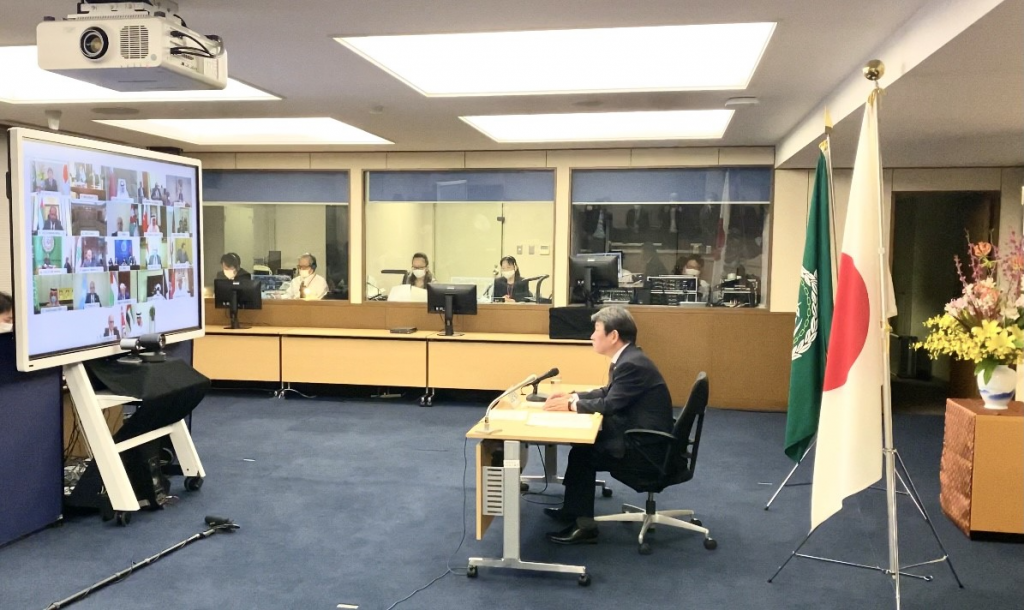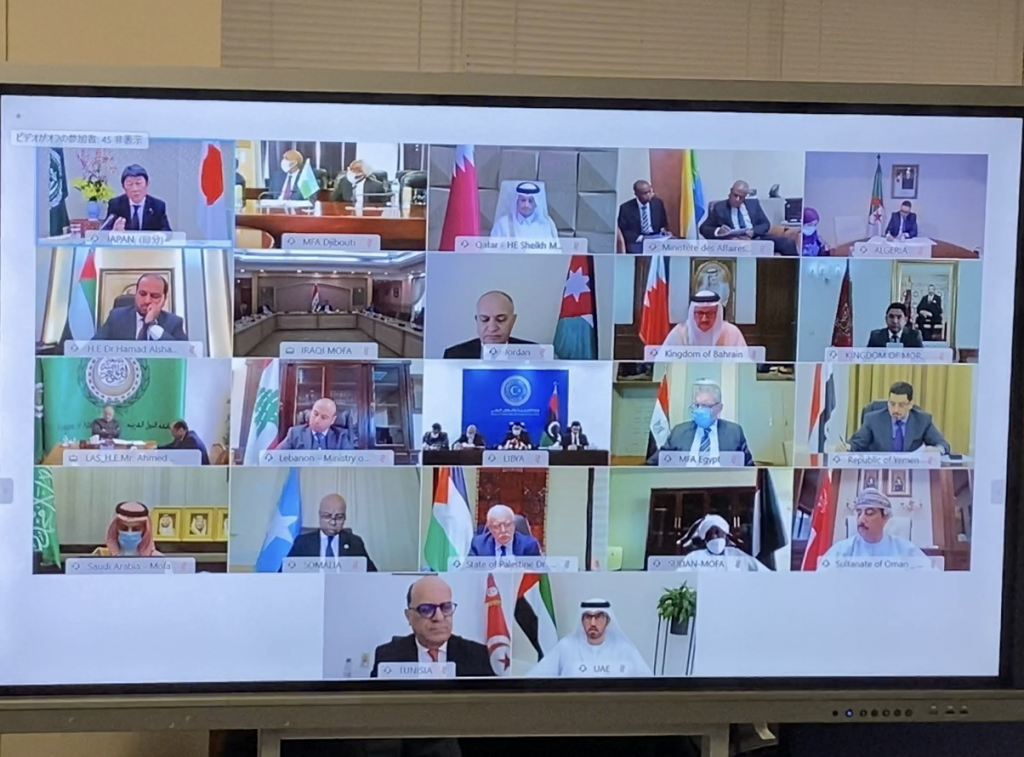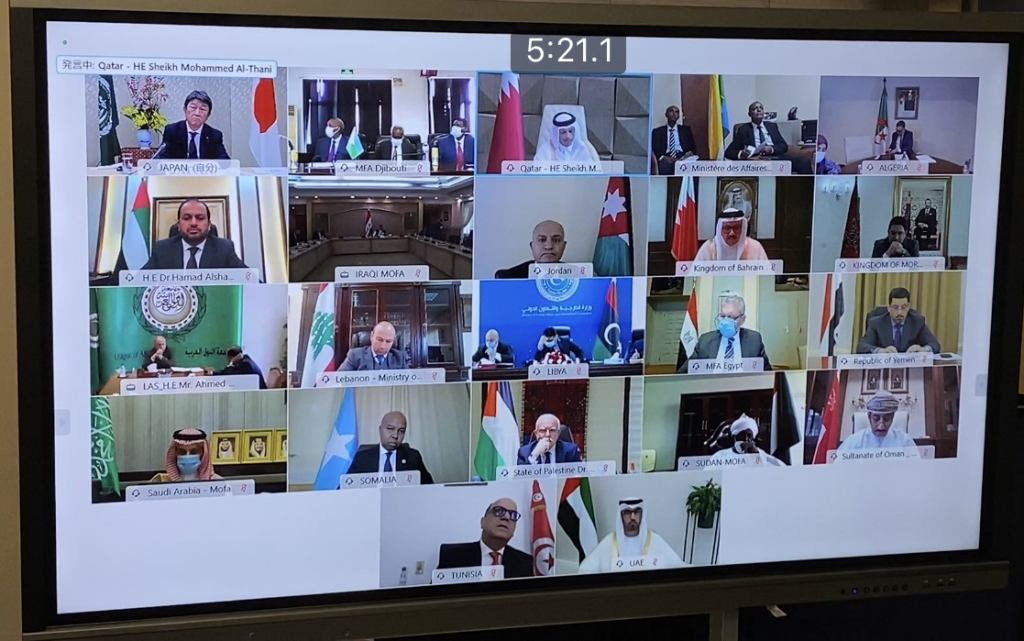





Khaldon Azhari
TOKYO: On April 1 Japanese and Arab foreign ministers as well as high ranking officials confirmed continued strong mutual ties and pledged to cooperate more in the battle against COVID-19, and toward stabilizing the situation in the Middle East.
For approximately 3 hours, the second Japan-Arab Political Dialogue was held in an online format co-chaired by Japan’s Foreign Minister MOTEGI Toshimitsu and Sheikh Mohammed bin Abdulrahman bin Jassim Al-Thani, Deputy Prime Minister and Foreign Minister of Qatar. Ahmed Aboul Gheit, Secretary General of the League of Arab States, as well as 21 foreign ministers and representatives from member states and regions of the League of Arab States, attended the dialogue.
In his opening remarks, minister Motegi referred to the COVID-19 pandemic and the changing power balance in the international community, stating that it is extremely important for Japan and the Arab countries with a long-lasting friendship to have frank exchange of views amid growing instabilities and uncertainties in international affairs.
Minister Motegi underlined Japan’s intention to commit itself more deeply to the Middle East affairs and to reinforce cooperation with a view to maintain and solidify the rule-based international order.
Regarding the Middle East Peace Process, Minister Motegi stressed that Japan’s position in support of a two-state solution remains the same, stating that Japan would continue its efforts to advance the peace process through direct negotiations among the concerned parties by taking advantage of the recent positive developments.
Minister Motegi also expressed his concerns about the continuing high tensions in the region over Iran and stated that Japan will continue its diplomatic efforts toward easing tensions and stabilizing the situation in the region.
Qatari Deputy Prime Minister Sheikh Mohammed bin Abdulrahman bin Jassim Al-Thani, and Secretary General Ahmed Aboul Gheit expressed their views on regional and international issues, referring to the various collaborations between Japan and the Arab countries that have already been materialized.
In the main session, Minister Motegi explained Japan’s support for the Arab countries on achieving the Universal Health Coverage (UHC), including addressing COVID-19 based on the principle of human security, explaining successful examples of Japan’s existing assistance that has contributed to countermeasures against the pandemic.
The Japanese minister also recognized the need of bringing success to the efforts under the international frameworks to ensure equitable access to vaccines by all countries, including developing countries. Other representatives also mentioned the necessity of international collaboration to tackle the pandemic.
Regarding maritime security, Minister Motegi explained that the Middle East region, rich in energy resources, is located in the middle of the critical sea lanes connecting East Asia and Africa through South Asia. he stressed that it is necessary to ensure a free and open order in the region, which underpins the prosperity of Indo-Pacific through those sea lanes.
Many participants expressed their support for the principles set out in “Free and Open Indo-Pacific (FOIP)”, including the importance of the maritime order based on the rule of law and international law, as well as the importance of the energy security.
Regarding the situations in East Asia, Minister Motegi strongly condemned the ballistic missile launches by North Korea last week and asked for cooperation on addressing issues related to North Korea, including the abductions issue. Minister Motegi also expressed serious concerns on the attempts to unilaterally change the status quo in the East and South China Seas, including China’s Coast Guard Law, according to Japanese officials who attended the meeting.
In closing, Minister Motegi expressed his appreciation for all participants, and stated that he is determined to continue to cooperate with the Arab countries with a view to further enhancing comprehensive, multi-layered and strategic relations.